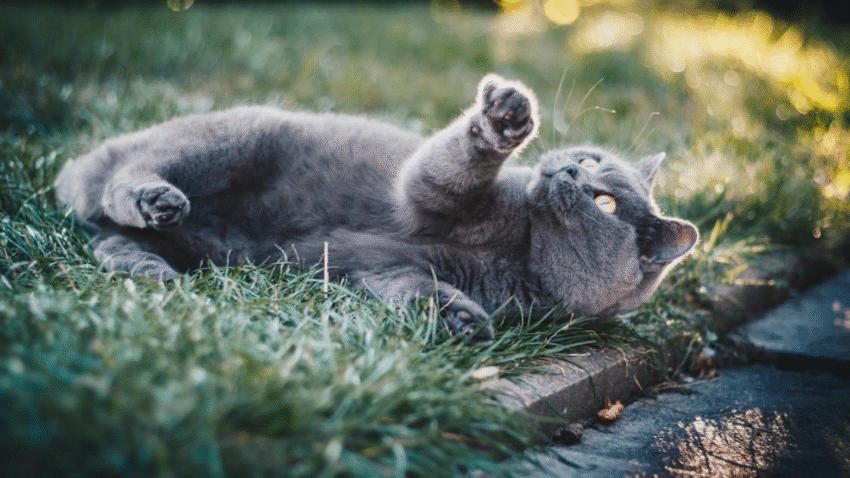Introduction
Tired of being woken up at 4 a.m. by a meowing cat on your chest or paws in your face? You’re not alone. Many cat owners struggle with early morning wake-ups. In this guide, you’ll learn how to discourage your cat from waking you up early—without damaging your bond or stressing them out. With a few adjustments and some consistency, you can enjoy uninterrupted sleep while keeping your cat happy.
Why Early Wake-Ups Happen and Why They Matter
Cats are naturally crepuscular, meaning they are most active at dawn and dusk. While that worked well in the wild, it doesn’t line up with our modern sleep schedules. Common reasons your cat might wake you up early include:
- Hunger or irregular feeding schedule
- Boredom or pent-up energy
- Habit from being rewarded with attention
- Natural body clock that hasn’t adjusted to your routine
- Environmental triggers like birds chirping or sunrise
Early morning wake-ups aren’t just annoying—they can impact your sleep, cause stress, and affect your relationship with your cat. Training your cat to wait for your cue can create a more peaceful household for both of you.
Step-by-Step Guide to Discouraging Early Wake-Ups
Step 1: Rule Out Health Issues
Before making behavioral changes, ensure your cat isn’t waking you up due to pain, illness, or anxiety. Look for signs such as:
- Excessive meowing
- Weight loss
- Vomiting or diarrhea
- Litter box issues
- New behavior changes
If you notice any of these, schedule a vet visit before assuming it’s just a habit.
Step 2: Feed Your Cat Later in the Evening
One of the biggest reasons cats wake their owners early is hunger. To fix this:
- Schedule the last meal of the day around 8–10 p.m.
- Use an automatic feeder if you can’t be consistent
- Avoid feeding them right after they wake you up—this reinforces the behavior
Cats that feel full at night are less likely to wake you for food in the early hours.
Step 3: Increase Evening Playtime
Cats that have extra energy will often try to burn it off at dawn. Help them wind down by:
- Engaging in 10–15 minutes of interactive play before bed
- Using wand toys, laser pointers, or treat puzzles
- Following playtime with a small snack to mimic the hunt-eat-groom-sleep cycle
This routine mimics natural behavior and encourages restful sleep.
Step 4: Make Your Bedroom Off-Limits
If your cat has formed a habit of waking you up in your room, consider:
- Sleeping with the door closed
- Using a white noise machine to block out meowing
- Creating a cozy sleeping area for your cat outside the bedroom
Start with short separations and gradually increase the time, so your cat gets used to not relying on your presence at night.
Step 5: Ignore Attention-Seeking Behavior
This is often the hardest but most important step. If your cat wakes you up and you:
- Talk to them
- Feed them
- Pet them
- Push them off the bed
…you are reinforcing the behavior, even if your response is negative. Instead, stay still, stay quiet, and avoid giving any attention.
It may get worse before it gets better (a phase called “extinction burst”), but if you’re consistent, your cat will learn the behavior no longer works.
Common Mistakes to Avoid
1. Giving in Just to Get More Sleep
Even one morning of giving in can reset weeks of progress. Stay strong and stick to the plan.
2. Not Creating a Nighttime Routine
Cats thrive on routine. Inconsistent bedtimes or feeding schedules can confuse them and trigger early wake-ups.
3. Overstimulating Right Before Bed
Roughhousing or hyperactive play right before bed can keep your cat wired. Try ending playtime with calm petting or brushing.
4. Using Punishment
Yelling or pushing your cat off the bed may stop the behavior in the moment, but it creates anxiety and doesn’t teach better habits.
5. Skipping Enrichment During the Day
Bored cats are more likely to act out. Make sure your cat is mentally and physically stimulated throughout the day with toys, climbing spaces, and puzzles.
Extra Tips & Recommendations
- Use an Automatic Feeder: Set it to dispense food at your ideal wake-up time so your cat stops associating you with breakfast.
- Try Calming Products: Feliway diffusers or calming collars may help reduce nighttime anxiety that leads to early waking.
- Make the Bedroom Boring: Keep lights off, avoid noisy fans or TVs, and remove things your cat likes to play with in your sleeping space.
- Set a Morning Routine: Train your cat to wait for a signal, such as a morning light turning on or an alarm, before receiving attention or food.
Need help redirecting other frustrating behaviors? Read our guide on [how to redirect destructive cat behavior].
Conclusion
Your cat doesn’t mean to ruin your sleep—they’re just following their instincts or routines. But with a consistent feeding schedule, more evening stimulation, and a commitment to ignoring unwanted behavior, you can retrain your cat to let you rest. Be patient, stay consistent, and don’t give up. A full night’s sleep is closer than you think.
Keep coming back for more step-by-step cat care tips to help you and your feline friend live in harmony.
